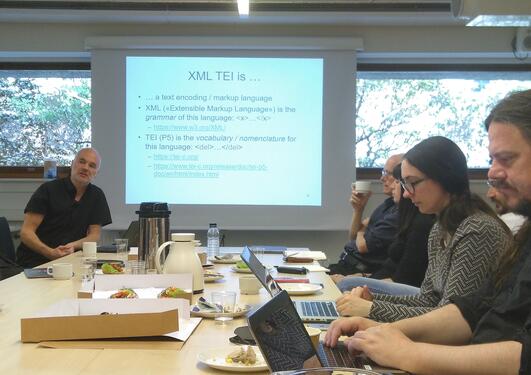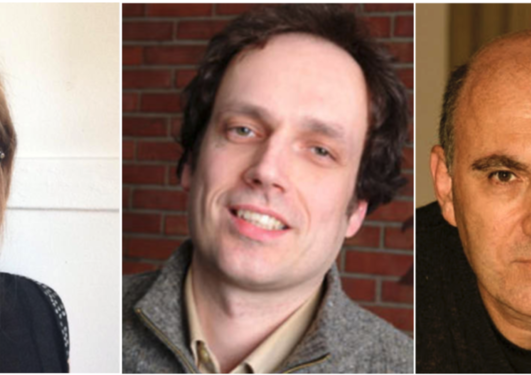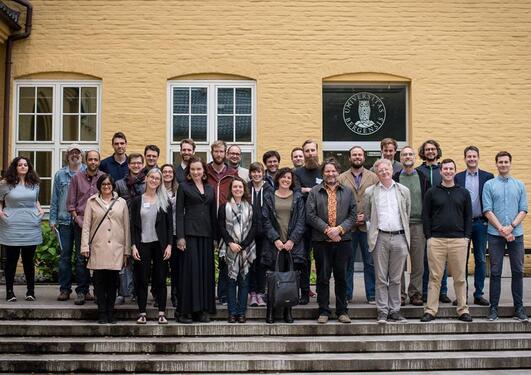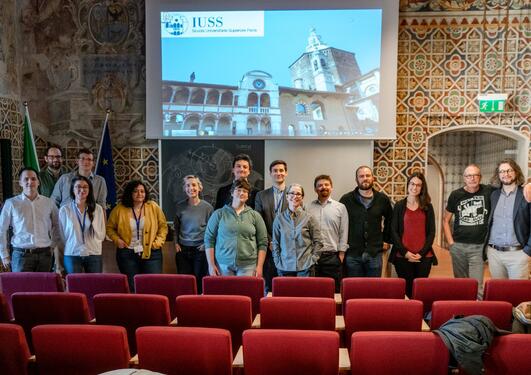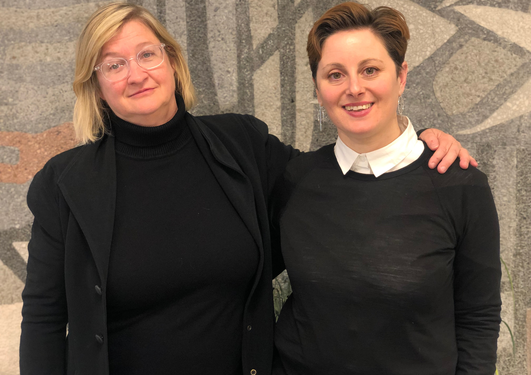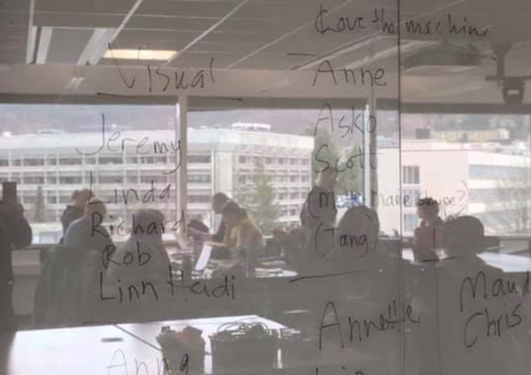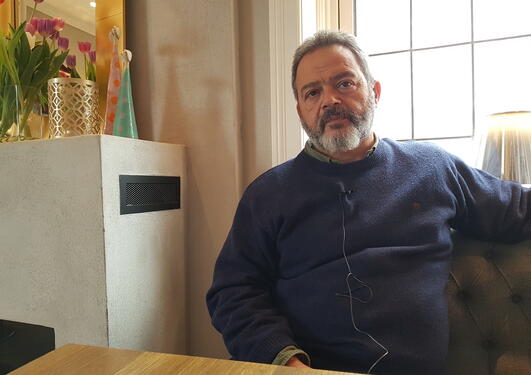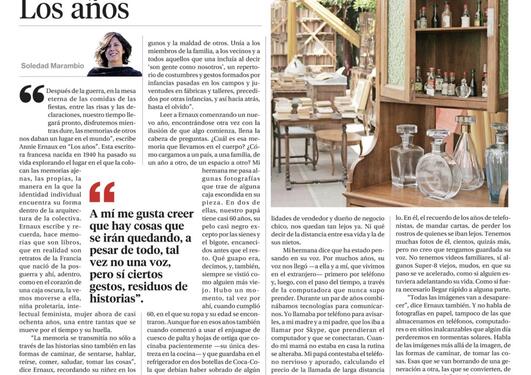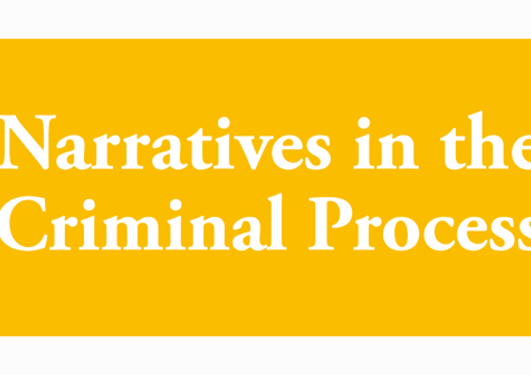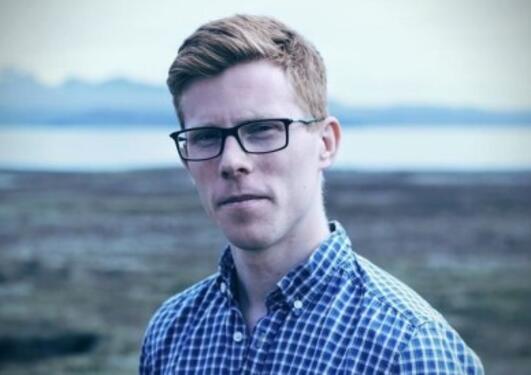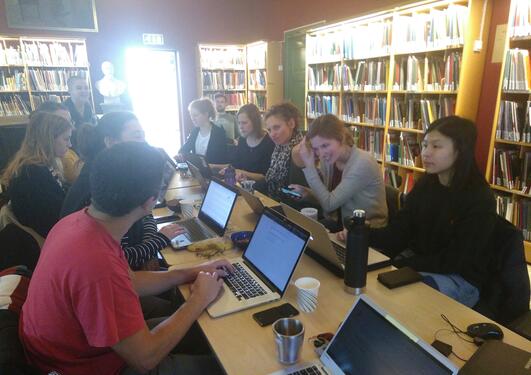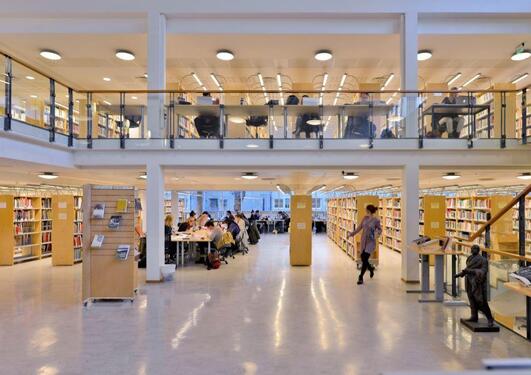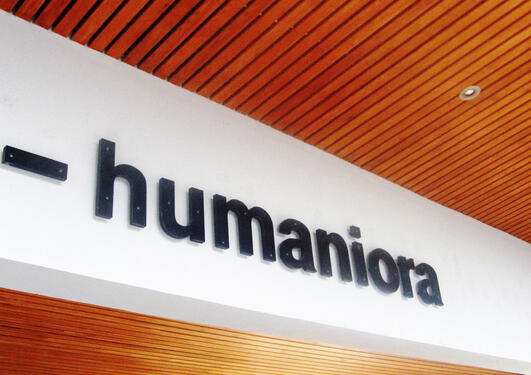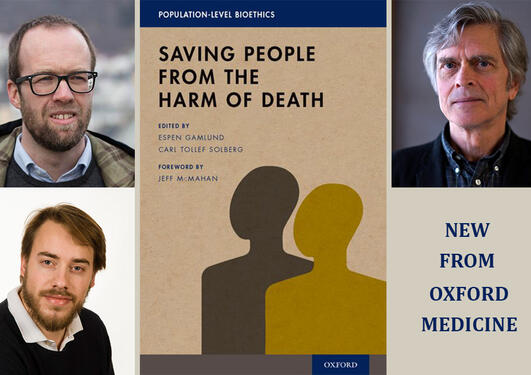News archive for Faculty of Humanities
We had a full house on Tuesay at the DHNetwork’s second workshop, in which Alois Pichler and Max Hadersbeck introduced XML as a tool for digital editions.
The CALENDARS project started on New Years day 2019, and it is off to an energetic start!
Chr. Michelsen Institute and the University of Bergen have a long-standing agreement to strengthen development-related research in Bergen. We now invite applications for collaboration between our two institutions. Deadline 14 June, 2019.
During this lunch meeting, people listened to three lightning presentations on different approaches and concerns regarding critical digital editions, followed by a lively discussion.
The Bergen Logic Group and the NFR-funded project `Anti-Exceptionalism About Logic' organized the conference The Normativity of Logic, June 14-16 2017 (University of Bergen).
The Bergen Logic Group visited Pavia and the centre UISS. Together with UISS and the University of Bologna we organized a workshop in the philosophy of logic, especially logical pluralism and anti-exceptionalism.
In a well-attended double lecture session, Elizabeth Losh gave an overview of her new edited volume on about intersectional feminism and digital humanities and Aristea Fotopoulou introduced the background of her book project about feminist data studies.
Scholars, artists and designers met for a two-day workshop to continue work on an anthology to be titled "Future Histories of Machine Vision".
Questions regarding migration and patriarchy, in particular the Lebanese diaspora, were debated during Ghassan Hage's visit in Bergen.
Soledad Marambio explores issues related to ageing in the Chilean newspaper La Segunda.
The international research conference Narratives in the Criminal Process took place at the University of Bergen on Friday 30 November and Saturday 1 December 2018. More than 50 scholars, researchers and students attended 28 presentations of papers on various subjects in the interdisciplinary field of law, humanities, media and social sciences.
This year's Nils Klim Prize is awarded to philosopher of science Finnur Dellsén (University of Iceland).
Last Sunday, 10 March 2019, Post-doc Maud Ceuterick and PhD candidate Hannah Ackermans in Digital Culture at UiB organized a feminist Wikipedia Edit-A-Thon to improve the documentation of women and other marginalized people on Wikipedia.
Thirty people attended the DHNetwork opening event at the Arts and Humanities Library. It was very encouraging to see so many people from different departments interested in advancing Digital Humanities at UiB.
UiB is planning to establish an interdisciplinary center for humanistic research. Within this framework, funds are available for two basic research projects with a deadline of 15 March.
Kva feirar me eigentleg 21. februar kvart år? Kva er i det heile morsmål?
On February 6-9, 2019, the researchers on the WAIT project gathered in Athens.
In this volume, leading philosophers, medical doctors, and economists discuss different views on how to evaluate death and its relevance for health policy.
Pages
- February 2025 (4)
- January 2025 (3)
- December 2024 (4)
- November 2024 (7)
- October 2024 (5)
- September 2024 (6)
- August 2024 (4)
- July 2024 (1)
- June 2024 (5)
- May 2024 (6)
- April 2024 (7)
- March 2024 (3)
- February 2024 (5)
- January 2024 (8)
- December 2023 (5)
- November 2023 (4)
- October 2023 (6)
- September 2023 (11)
- August 2023 (6)
- June 2023 (9)
- May 2023 (11)
- April 2023 (8)
- March 2023 (4)
- February 2023 (6)
- January 2023 (7)
- December 2022 (1)
- November 2022 (9)
- October 2022 (4)
- September 2022 (9)
- August 2022 (5)
- June 2022 (3)
- May 2022 (4)
- April 2022 (4)
- March 2022 (6)
- February 2022 (7)
- January 2022 (4)
- December 2021 (2)
- November 2021 (6)
- October 2021 (5)
- September 2021 (11)
- August 2021 (8)
- July 2021 (2)
- June 2021 (4)
- May 2021 (5)
- April 2021 (6)
- March 2021 (9)
- February 2021 (5)
- January 2021 (7)
- December 2020 (5)
- November 2020 (5)
- October 2020 (5)
- September 2020 (7)
- August 2020 (5)
- July 2020 (3)
- June 2020 (6)
- May 2020 (4)
- April 2020 (7)
- March 2020 (2)
- February 2020 (3)
- January 2020 (2)
- December 2019 (2)
- November 2019 (6)
- October 2019 (7)
- September 2019 (7)
- August 2019 (5)
- July 2019 (1)
- June 2019 (6)
- May 2019 (5)
- April 2019 (4)
- March 2019 (6)
- February 2019 (4)
- January 2019 (2)
- December 2018 (2)
- November 2018 (4)
- October 2018 (1)
- September 2018 (4)
- June 2018 (5)
- May 2018 (2)
- April 2018 (3)
- March 2018 (1)
- February 2018 (2)
- January 2018 (7)
- December 2017 (1)
- November 2017 (1)
- October 2017 (2)
- September 2017 (5)
- August 2017 (1)
- July 2017 (1)
- June 2017 (6)
- May 2017 (2)
- April 2017 (3)
- March 2017 (6)
- February 2017 (3)
- January 2017 (1)
- December 2016 (1)
- November 2016 (2)
- October 2016 (2)
- August 2016 (2)
- June 2016 (1)
- May 2016 (2)
- March 2016 (1)
- January 2016 (1)
- October 2015 (1)
- August 2015 (2)
- July 2015 (1)
- June 2015 (3)
- May 2015 (3)
- April 2015 (1)
- February 2015 (1)
- January 2015 (1)
- November 2014 (2)
- October 2014 (2)
- September 2014 (3)
- August 2014 (1)
- May 2014 (2)
- April 2014 (1)
- March 2014 (5)
- February 2014 (1)
- November 2013 (5)
- August 2013 (1)
- July 2013 (1)
- June 2013 (2)
- May 2013 (1)
